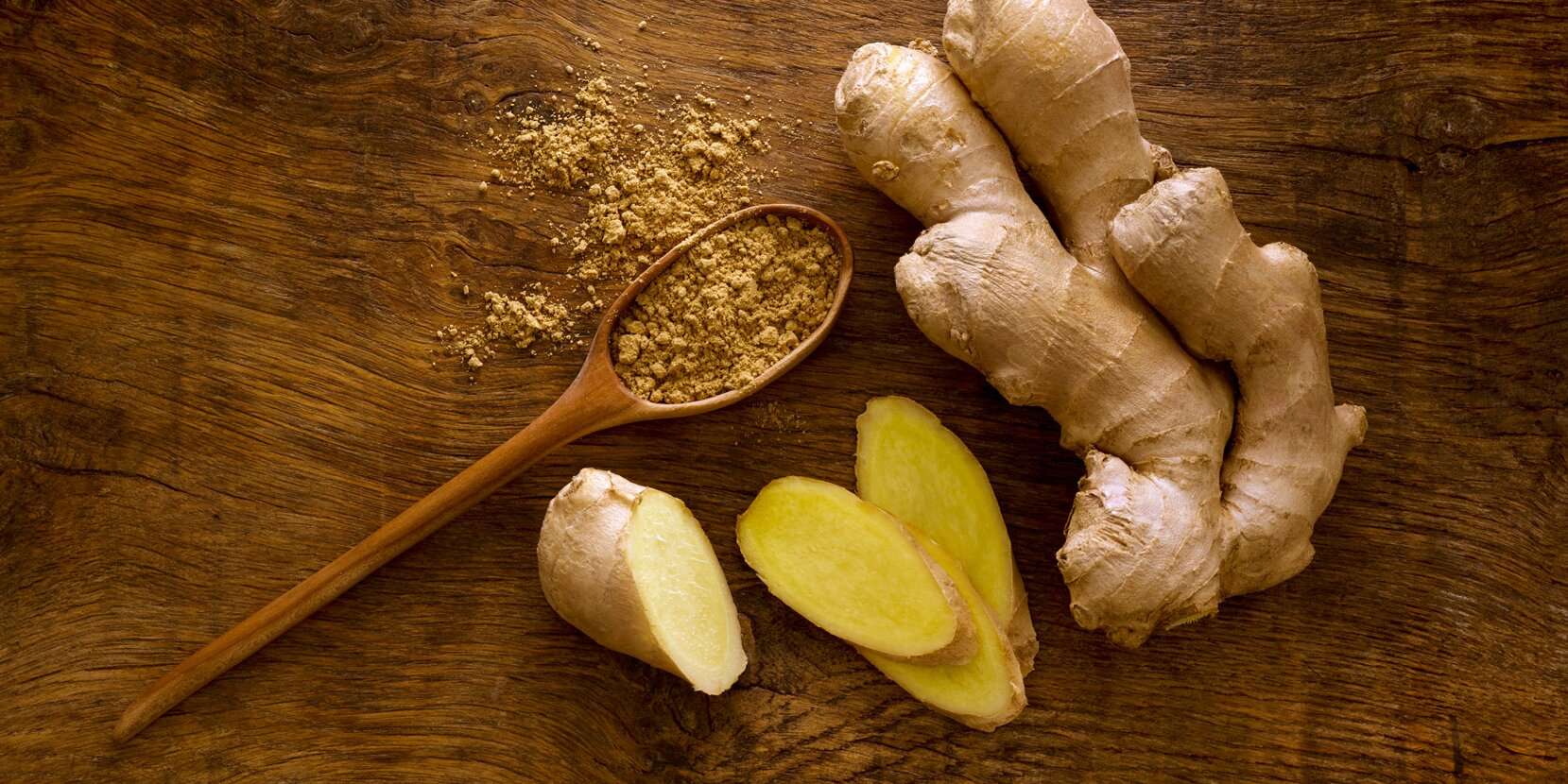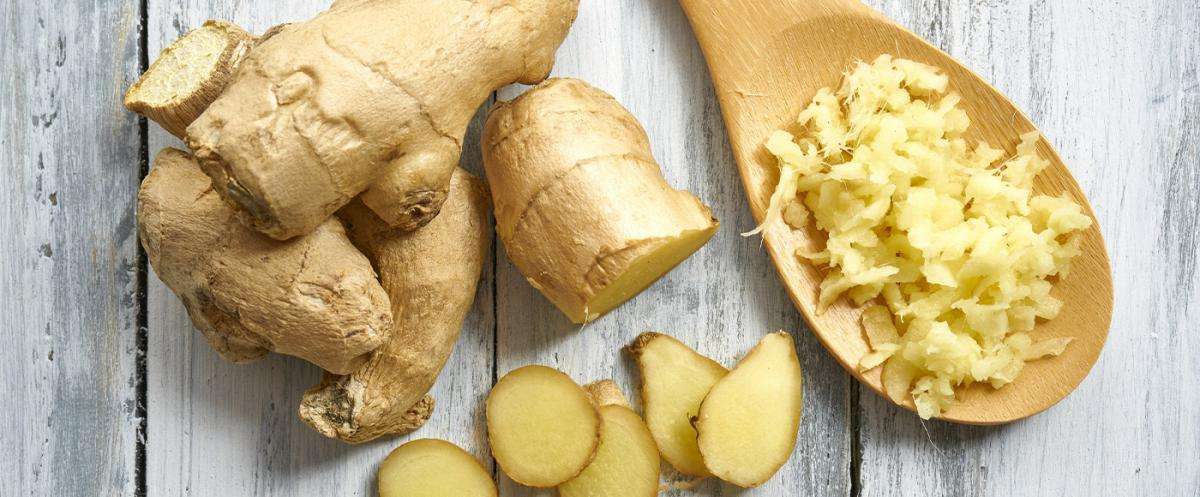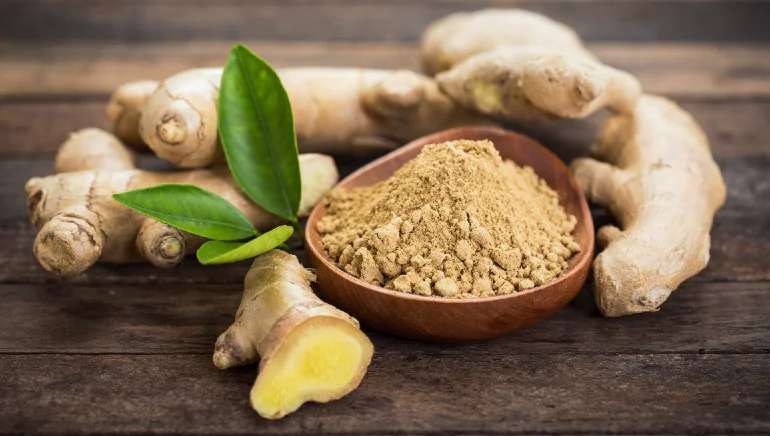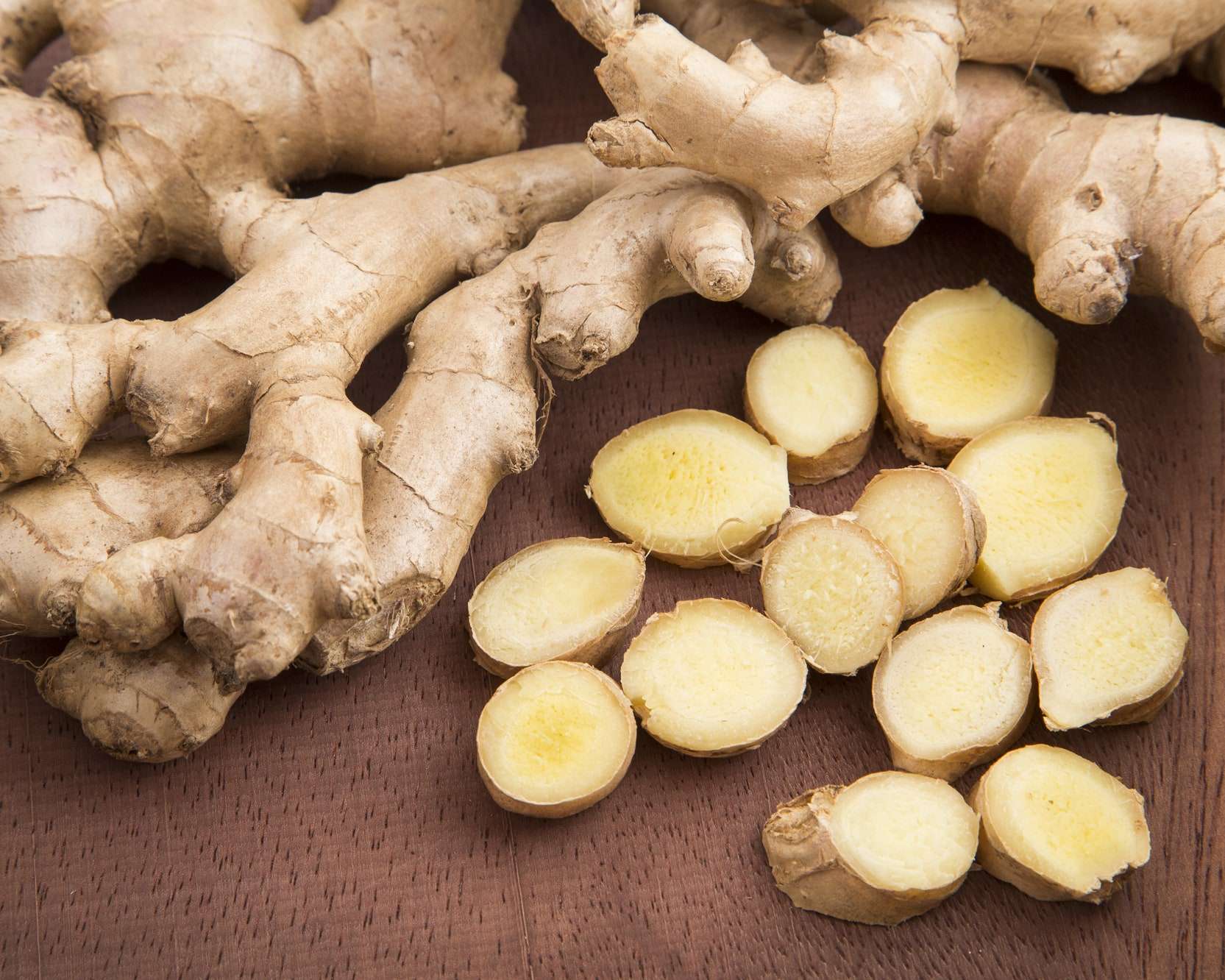Ginger, its health benefits and side effects
Ginger, its health benefits and side effects
According to traditional medicine, ginger is spicy and warm. It is used to aid digestion, relieve nausea, and fight colds. In addition, depending on the form of use, ginger has many different uses. In particular, Ginger is rich in gingerol, a substance with powerful anti-inflammatory and antioxidant properties.
Ginger is a flowering plant native to Asia. Ginger belongs to the Zingiberaceae family and is closely related to turmeric, galangal and cardamom.
The rhizome of ginger, commonly known as ginger root or simply ginger, is the most commonly used part. Ginger is used fresh or dried in powder, or oil or juice. Ginger is not only commonly used in recipes, but it is also used extensively in the cosmetic industry.
The chemical composition of ginger contains about 2-3% essential oil with the main components being sesquiterpenic hydrocarbon compounds: b-zingiberen (35%), b-curcumenen (17%), b-farnesen (10%) and small amounts of monoterpenic alcohol compounds such as geraniol, linalol, borneol. Resin contains 20 - 25% essential oils and 20 - 30% spicy substances. The main ingredients of the spicy group are zingeron, shogaol and zingerol, in which gingerol accounts for the highest proportion. In addition, in ginger essential oil also contains a-camphen, b-phelandren, eucalyptol and gingerols.

HEALTH BENEFITS FROM GINGER
According to traditional medicine, ginger is spicy and warm. It is used to aid digestion, relieve nausea, and fight colds. In addition, depending on the form of use, ginger has many different uses. In particular, Ginger is rich in gingerol, a substance with powerful anti-inflammatory and antioxidant properties.
Fight against infection
Due to being rich in Gingerol, ginger helps to reduce the risk of infection. Ginger extract can inhibit the growth of various bacteria.
According to a 2008 study, it is very effective against oral bacteria that are associated with gingivitis and periodontitis. These are all gum diseases.
Fresh ginger may also be effective against respiratory syncytial virus (RSV), a common cause of respiratory infections.
Treating Chronic Indigestion
Chronic indigestion is characterized by recurrent pain and discomfort in the upper part of the stomach.
Ginger has been shown to speed gastric emptying, which can be beneficial for people with indigestion and stomach-related discomfort.
In a small 2011 study, people with functional or unexplained dyspepsia were given either ginger tablets or a placebo. An hour later, they were all given soup. The results showed that it took 12.3 minutes for those taking ginger to empty their stomachs and 16.1 minutes for those taking a placebo.
In another 2008 study of several members of the same research group, 24 healthy people were given either ginger tablets or a placebo. They were all given soup an hour later. The results demonstrated that consuming ginger as opposed to a placebo significantly accelerated gastric emptying. It took 13.1 minutes for the ginger user and 26.7 minutes for the placebo user.

Stop feeling nauseous
Ginger is highly effective in combating nausea.
Just 1–1.5 grams of ginger can help prevent different types of nausea, including chemotherapy-related nausea, nausea after surgery, morning sickness, and motion sickness.
According to a review of 12 studies including a total of 1,278 pregnant women, 1.1–1.5 grams of ginger can significantly reduce symptoms of nausea. Although ginger is considered safe, if you are pregnant you should consult your doctor before taking large amounts.
Pregnant women who are near labor or have had a miscarriage should avoid ginger. Ginger is contraindicated with a history of vaginal bleeding and coagulopathy.
Cure Osteoarthritis
Osteoarthritis (OA) is a common health problem. It involves the degeneration of joints in the body, leading to symptoms such as joint pain and stiffness.
There are some studies that show that ginger is effective in reducing the symptoms of osteoarthritis, especially knee osteoarthritis. The ginger review found that people who used ginger to treat their arthritis experienced significant reductions in pain and disability.
Another study from 2011 found that a combination of ginger, mastic, cinnamon, and sesame oil applied topically could help reduce pain and stiffness in people with knee arthritis.

Relieve menstrual pain
One of the traditional uses of ginger is to relieve pain, including menstrual cramps.
Dysmenorrhea is pain during the menstrual cycle. Ginger seems to be very effective in reducing menstrual pain when taken at the beginning of a period.
In a 2009 study, 150 women were instructed to take ginger or a nonsteroidal anti-inflammatory drug (NSAID) for the first 3 days of their period. The results showed that Ginger was as effective in reducing pain as the two NSAIDs.
More recent studies have also concluded that ginger is more effective than placebo and as effective as drugs like mefenamic acid and acetaminophen/caffeine/ibuprofen (Novafen).
Although these findings are promising, higher quality studies with larger study participants are still needed.
Weight loss
Ginger plays a role in weight loss. According to animal and human studies, ginger improves weight-related measurements, including body weight, waist and hip ratio.
Ginger's ability to influence weight loss may be related to certain mechanisms, such as its ability to help increase the number of calories burned or reduce inflammation.
A 2019 literature review concluded that ginger supplementation significantly reduced body weight, waist ratio, and hip ratio in overweight or obese individuals.
A 2016 study of 80 obese women found that ginger helped reduce body mass index (BMI) and blood insulin levels. High blood insulin levels are associated with obesity.
Study participants received a relatively high daily dose - 2 grams - of ginger powder for 12 weeks.

Lowers blood sugar
Improve factors that can cause heart disease
This area of research is relatively new, but it shown ginger has powerful anti-diabetic properties.
Ginger has been shown to lower blood sugar and improve risk factors for heart disease in people with type 2 diabetes.
In a 2015 study of 41 participants with type 2 diabetes, results showed that 2 grams of ginger powder per day reduced fasting blood sugar by 12%. It also significantly improved hemoglobin A1c (HbA1c), a marker for long-term blood glucose levels. HbA1c was reduced by 10% over a 12-week period. There was also a 28% reduction in the Apolipoprotein B/Apolipoprotein A-I ratio and a 23% reduction in malondialdehyde (MDA), a byproduct of oxidative stress. A high ApoB/ApoA-I ratio and high MDA level are both major risk factors for heart disease. However, this was only a small study. The results are impressive, but they need to be confirmed in larger studies before any recommendations can be made.
May help lower cholesterol levels
High levels of LDL (bad) cholesterol are associated with an increased risk of heart disease. The foods you eat can have a dramatic effect on your LDL levels.
There is some evidence, in both humans and animals, that ginger can significantly reduce levels of LDL (bad) cholesterol, total cholesterol, and triglycerides in the blood.
In a 2018 study of 60 people with hyperlipidemia, 30 people who received 5 grams of ginger powder daily saw their LDL (bad) cholesterol levels drop by 17.4% over a 3-month period. While the drop in LDL was impressive, it's important to note that the study participants received very high doses of ginger.
In an older study from 2008, people who received 3 grams of ginger powder (in capsule form) per day also experienced significant reductions in most cholesterol readings. Their LDL (bad) cholesterol levels dropped by 10% in 45 days.
The findings are supported by a study in rats with hypothyroidism or diabetes. Ginger extract lowers LDL (bad) cholesterol to the same extent as the cholesterol-lowering drug atorvastatin.
Study subjects from all 3 studies also experienced a reduction in total cholesterol. The participants in the 2008 study, as well as the mice, also saw a decrease in their blood triglycerides.


Improve brain function
Protection against Alzheimer's disease
Oxidative stress and chronic inflammation can accelerate the aging process, which is believed to be one of the main causes of Alzheimer's disease and age-related cognitive decline.
Animal studies suggest that ginger may protect against age-related brain damage. It may also help improve brain function in middle-aged women.
Some animal studies suggest that the antioxidants and bioactive compounds in ginger may inhibit inflammatory responses occurring in the brain.
There is also some evidence that ginger may help boost brain function directly. In a 2012 study of healthy middle-aged women, daily doses of ginger extract were shown to improve reaction time and working memory.
May help prevent cancer
Ginger contains gingerol, which has a protective effect against cancer. However, more research is needed.
Ginger has been studied as an alternative remedy for some forms of cancer. The anti-cancer properties are due to gingerol, which is found in large amounts in raw ginger.
A 28-day study in individuals at normal risk of colorectal cancer, found that 2 grams of ginger extract per day significantly reduced inflammatory signaling molecules in the colon. This result was not found in people at high risk for colorectal cancer.
There is some evidence, although limited, that ginger may be effective against other gastrointestinal cancers such as pancreatic cancer and liver cancer.
It is also effective against breast and ovarian cancer. But overall, more research is needed.
Ginger is loaded with nutrients and bioactive compounds that have powerful benefits for your body and brain. So that, adding ginger to your diet to take health benefits from it. You should try to add ginger into your recipes as food or beverage.

RISKS AND SIDE EFFECTS FROM GINGER
We need to know that moderation is best. Anything, no matter how good, if you abuse it, it has risks or side effects.
Side effects: in small doses, ginger has few side effects. High doses of ginger - more than 5 grams per day - increase the risk of side effects.
- Ginger on the skin can cause a rash.
- Eating or drinking ginger can cause: Gas, Heartburn, Upset stomach, Mouth irritation.
Risks: Ginger may increase the risk of bleeding. If you have a bleeding disorder, ginger is not safe for you. Be aware with your doctor about any herbal medicines you take, including ginger.
Interactions: if you take any medications regularly, consult your doctor before you start taking ginger supplements. They can interact with blood thinners and medications for diabetes and high blood pressure.
Compiled and penned by Crocus Media